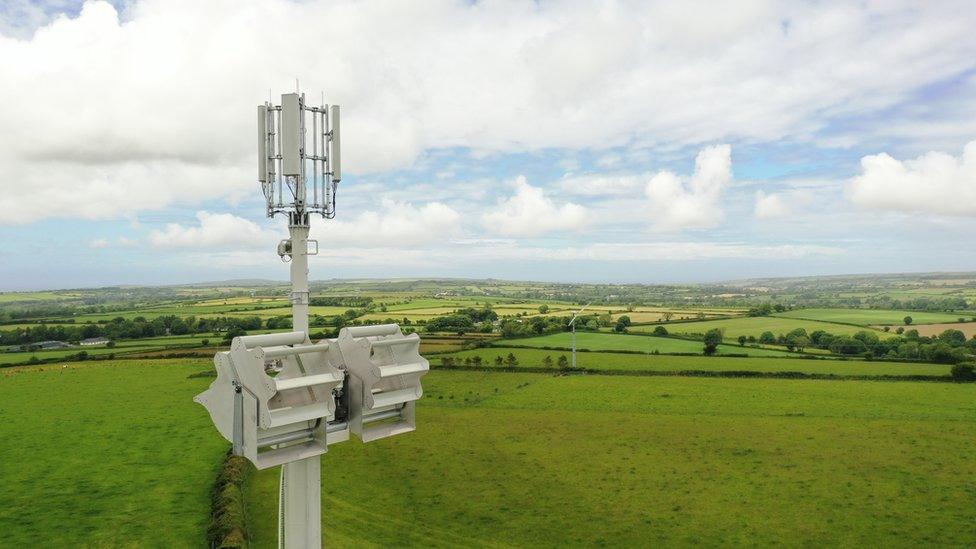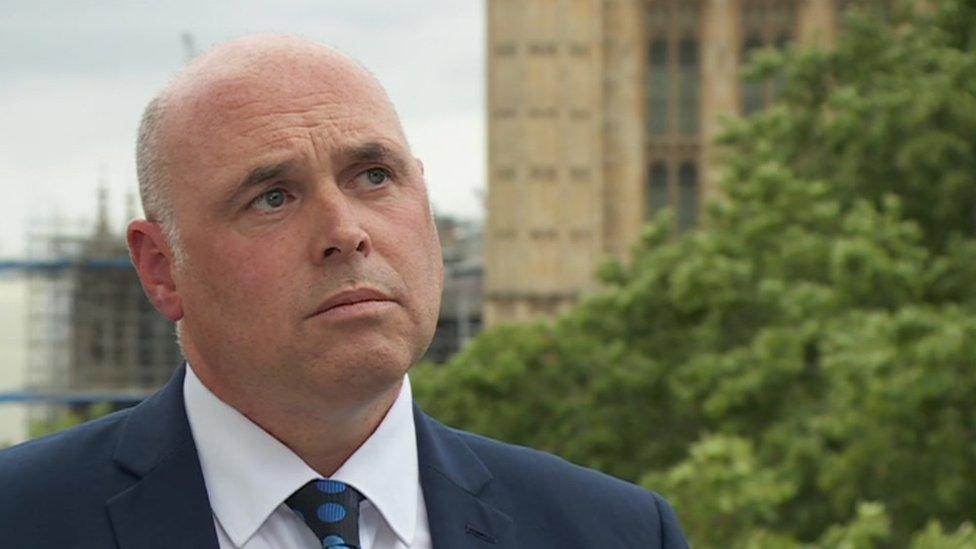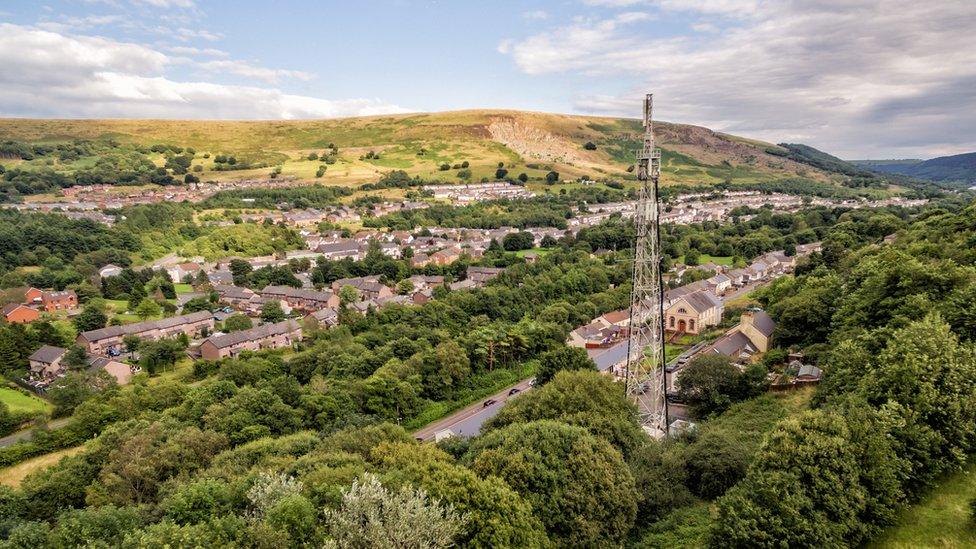Pembrokeshire: Wind and solar powered phone mast in UK first
- Published
The phone mast that runs off solar and wind power
The UK's first "off-grid" mobile phone mast is being switched on in a two-year pilot to deliver 4G coverage to a remote village.
The mast near Eglwyswrw, Pembrokeshire, has its own wind turbine, solar panels and battery storage.
Vodafone said, if successful, it could mean connectivity for "not-spots" in other remote and rural locations.
Ofcom Wales called it a positive initiative that could help bring more equal access to the digital economy.
Elinor Williams, the principal of regulatory affairs for Ofcom Wales, said: "While mobile coverage has improved, too many areas still struggle for a signal.
Vodafone said a new type of wind turbine being used can generate power even in light winds.
Developed by Crossflow Energy in Port Talbot, the turbines roll in the wind like a water wheel.
It makes them quieter than traditional turbines and more visible to birds and bats, making the mobile mast more suitable for the countryside and in sensitive sites.

The mobile phone mast has its own wind turbine, solar panels and battery storage
The trial at Home Farm, Eglwyswrw, will find out how much power the wind turbine and solar panels create, and the amount of energy the batteries can store.
Vodafone said it had earmarked another site for a similar "self-powering mast" in Wales before the end of the year.
Paul Davies, Member of the Senedd (MS) for Preseli Pembrokeshire said: "This is a really exciting development, which could be a game-changer for tackling not-spots in rural areas like Eglwyswrw."

Paul Davies said he was pleased Pembrokeshire was "at the forefront of this rollout"
"I hope the pilot is a huge success for the local area so that we can build on this innovative technology and roll it out to as many communities as possible in the future," he said.
A digital connectivity survey run in Wales in June last year found "a gaping hole between urban and rural areas when it comes to access and stability of broadband and mobile phone reception," according to the National Federation of Women's Institutes, which commissioned the research.
Its chair, Eirian Roberts, said she "welcomed any opportunities to improve mobile phone signal in rural areas as a matter of equality" and they would be following the pilot scheme "with great interest" .
Mike Childs, head of science at Friends of the Earth, said: "The cost of solar panels and wind turbines is now extraordinarily low, which is a boon not just for the environment but for those with limited access to power in hard-to-reach rural areas in the UK and across the world.
"Clean technology is the future, and can open up a world of possibilities. It's time we turned our back on the age of fossil fuels."
The Welsh government's Economy Minister Vaughan Gething said this was a "really interesting development in terms of digital inclusion" and hoped it could "lead to further mobile coverage in remote areas, supporting one our key aims of improving access to digital infrastructure".
He added he was "very proud the Welsh government has been able to support Crossflow and the development and implementation of this innovative and ground breaking project over a number of years".

EXPLORE ANGLESEY'S RICH WILDLIFE: Iolo explore Wales’ biggest island by land and sea
ICONIC WELSH PEOPLE, PLACES AND THINGS: Kiri unearths the best clips from the BBC Wales archive

Related topics
- Published25 October 2019

- Published9 March 2020

- Published22 February 2019
